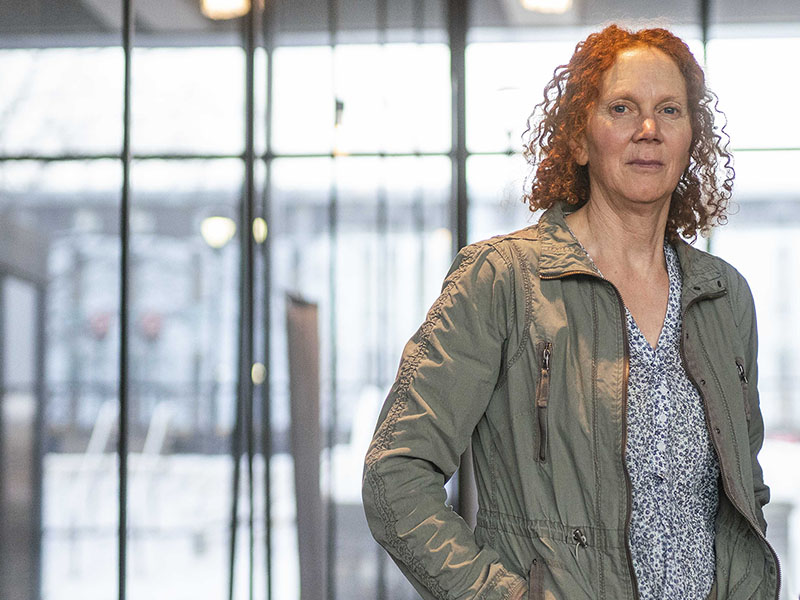Sprott School of Business students helping organizations on the road to sustainability
At Carleton University’s Sprott School of Business, students are learning about sustainability by helping client organizations tackle real projects related to environmental sustainability and the Triple Bottom Line.
“Business students are the most important students to be learning about the environment,” said Ruth McKay, associate professor of management at Sprott. “I’m unequivocal about this.”

The third-year business course, Sustainability and the Role of Business, examines the complex relationships among business, society and the environment, while exploring the nature of business in a world where addressing environmental and social issues is the need of the hour.
“We need to be teaching students this. They need to have a real depth and understanding. They’re going to work in firms, and those firms are building products, and those products are going to have a huge impact on our environment. So, if we don’t educate our business students, we’re not doing our job.”
Agreeing, Annabelle Kamau– a fourth-year Bachelor of Commerce student at Sprott – said:
“I think that studying sustainability is especially crucial for students right now as they are the future for not only the business world but also the environment. By learning about sustainability, students will gain the necessary skills and knowledge to tackle social and environmental changes that may occur in the future.”

And, speaking about the benefits of experiential learning, Ruth said that not only is it a method where what students learn sticks with them, but it also provides them with experiences which they can talk about as they graduate to the professional world.
“It makes a huge difference for them.”
For their first project in the class, students worked with Hockey Canada – the national governing body for grassroots hockey in Canada – and evaluated how well the organization is prepared to manage pressures and changes now and into the future.
The students made recommendations and presented creative solutions to help Hockey Canada improve resilience by adopting the Triple Bottom Line as their foundational framework. Using this approach, organizations should focus on social and environment responsibilities, along with their financial goals.

The COVID-19 pandemic has brought financial challenges to Hockey Canada, and while they’ve made great efforts to make a social impact, they don’t currently have a sustainability policy.
“I really enjoyed learning about sustainability and how to improve the Triple Bottom Line from the students,” said Madison Koekkoek, Hockey Canada’s social media coordinator. “They brought fresh perspectives to real challenges faced by our sport and our organization. Their solutions were well-thought-out and well-presented.”
“I felt a bit of extra motivation for this class as compared to others because we were working on a real-life project,” added Abhinav Khetarpal, a third-year student majoring in computer science and minoring in business. “I felt that my work could potentially have a direct impact on Hockey Canada and if not, I was at least learning something completely relevant to the industry.”

For their second project, the students are working with APC Packaging – a company based in Florida that provides packaging for cosmetic and skincare brands – and will look at packaging as a challenge for sustainability.
“The first project had breadth, the second has depth,” Ruth explained. “Greta Thunberg said people need to understand a lot more depth about environmental issues. So, really, we need to understand environmental issues at a much deeper level.”
In this changing world, teaching students about the necessity of focusing on responsibilities beyond profits and the role business can play in solving societal issues is extremely important.
“Mahatma Gandhi once said, ‘the things that will destroy us are politics without principle; pleasure without conscience; wealth without work; knowledge without character; business without morality; science without humanity; and worship without sacrifice,” Abhinav added. “I feel that as third-year students, we all have a certain degree of technical knowledge about business but as we come closer to graduating, it’s important to recognize that businesses have a responsibility to people and the environment, and not just shareholders.”